In ABIM Review — How Reflection Aids Performance, I highlighted new research showing that if you just keep repeating the same task over and over again without taking the time to step back and think about it, you may not be performing as well as those who spend a little time reflecting.
NEJM Knowledge+ helps users to reflect on learning in multiple ways, powerfully enhancing the learning process. Thinking about the clinical cases you’re reading and the questions you’re answering may seem like extra work or like it’s eating into what little time you have to study. But the research shows that people who reflect on their learning perform much better than their peers who haven’t set aside time to reflect.
Here are six ways users of NEJM Knowledge+ reflect on their learning within the adaptive learning platform:
Reflection Opportunity #1: Assessing Knowledge
Users are asked once at the beginning of each study module to assess their current knowledge level by topic and subtopic. This task sets the stage for learning as well as reflection.
Reflection Opportunity #2: Answering “How Confident Are You?”
Users are prompted to assess their confidence level upon answering every question. At first, this may seem like an “extra click” that takes time but doesn’t add much to the learning process. On the contrary — taking a few seconds to answer how confident you are with each question allows you to think about what you’re learning at a metacognitive level. As the studies on reflection showed, this is time well spent. It will improve both your performance and your self-efficacy.
Reflection Opportunity #3: Reviewing Weak Areas
Users can access a list of their most challenging learning objectives, which are mapped to the ABIM blueprint. Simply reviewing this list of topics they’ve struggled with gives learners the opportunity to think about what they know and don’t know. They can also click through to the questions associated with each learning objective, solidifying their knowledge and reflecting on their (newly increased) confidence.
Reflection Opportunity #5: Confidence Versus Performance
Users can also view a report showing their confidence level versus their performance level, with an explanation of what each quadrant means for the learner. It might just seem important to find out if your confidence is matching your performance, but at a higher level, even just taking the time to consider this question of confidence versus performance is an act of reflection — and thus will help you perform better.
Reflection Opportunity #6: Adaptive Learning
Last but not least, the adaptive learning system behind NEJM Knowledge+ invites reflection by its very nature. The product serves you up questions repeatedly, in different formats, until you’ve mastered the concept behind those questions. And after a user notices that he has seen a question before, he may reflect to himself, Why am I getting this question again? and then might answer himself, Because I got it wrong or I indicated I was unsure of my answer or I took longer answering than I usually do. These thoughts, as simple as they may be, can lead to greater self-awareness — and, eventually, better performance.
NEJM Knowledge+ provides these powerful opportunities to learn more effectively by thinking; it is up to you to take advantage of them.


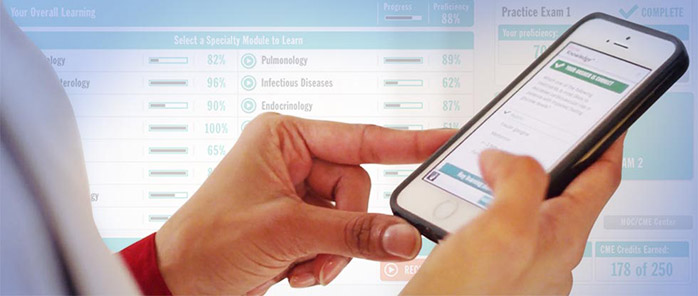
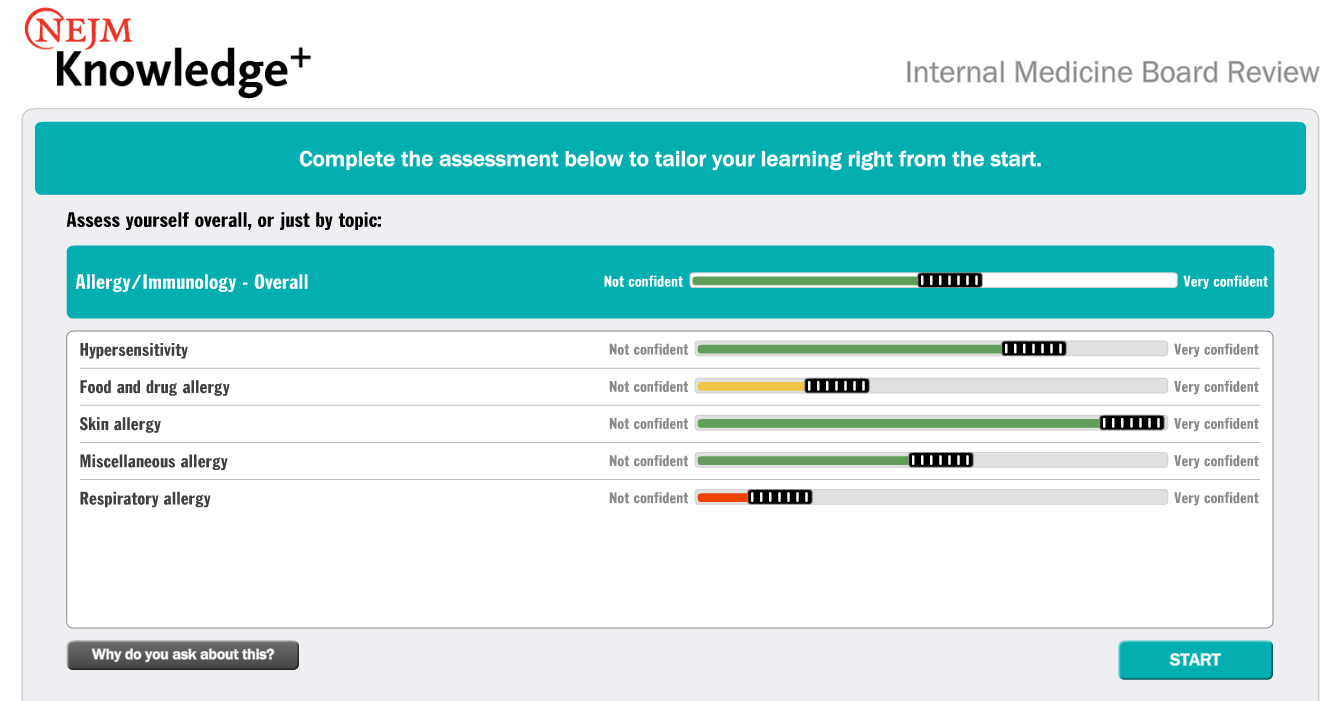
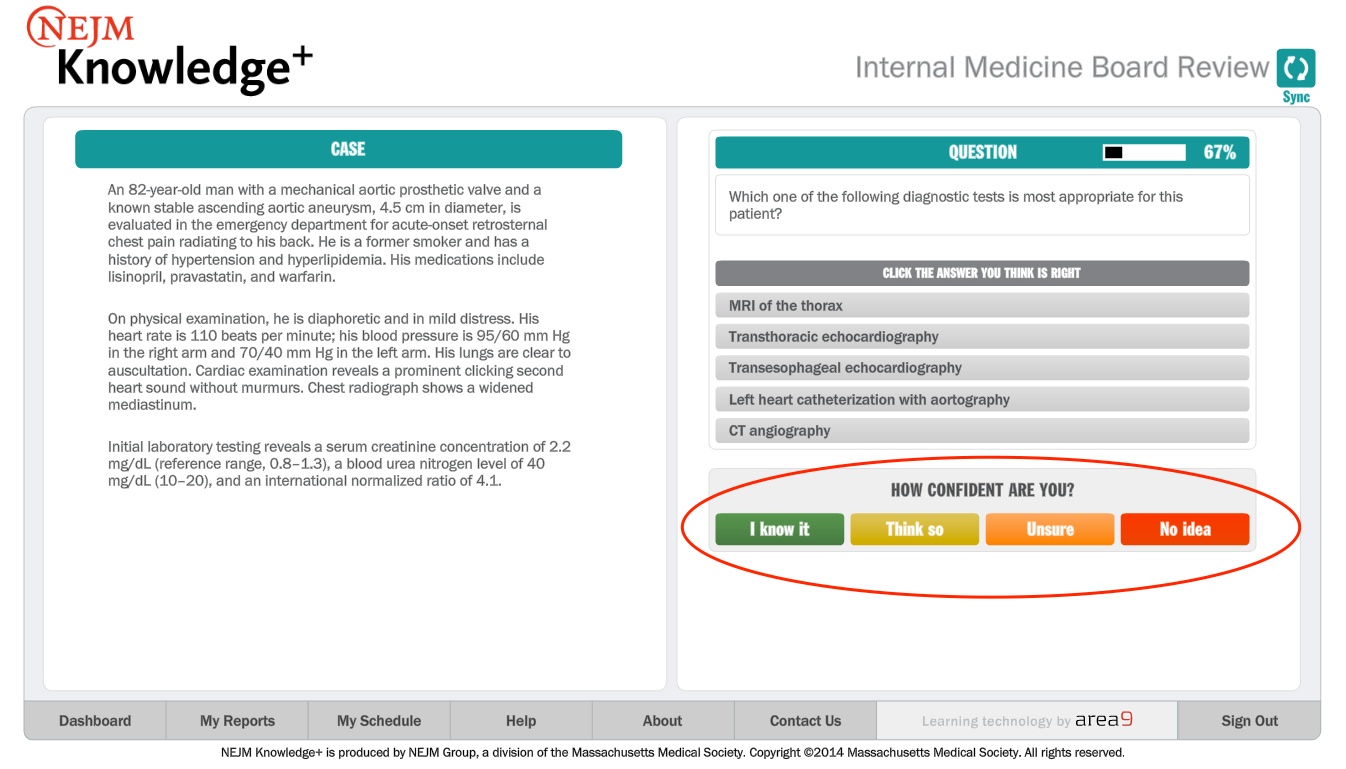

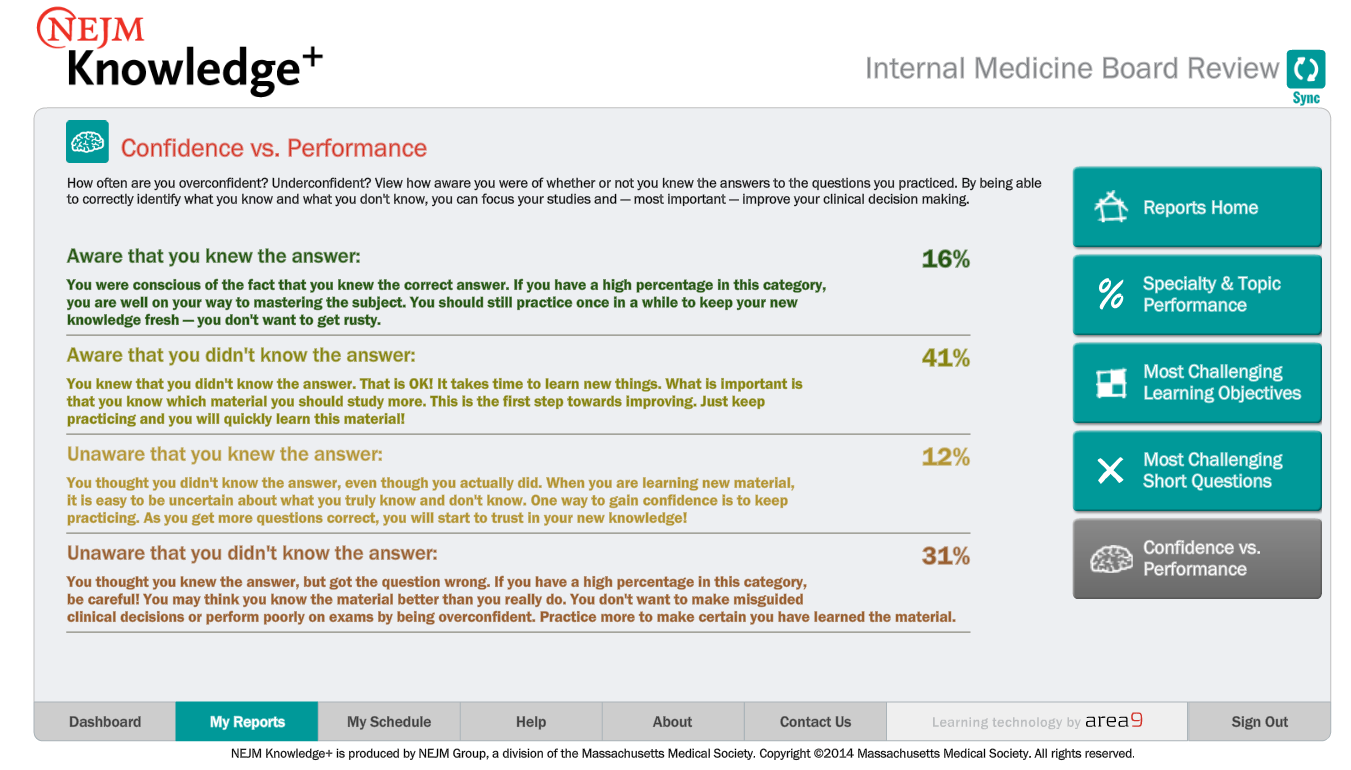

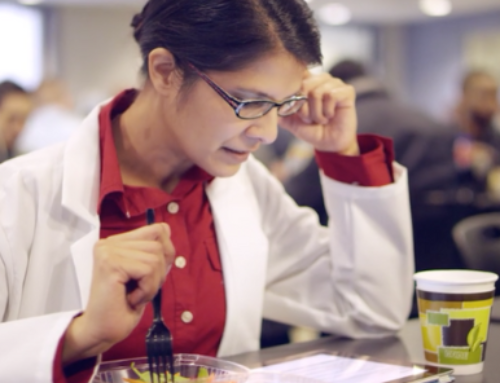



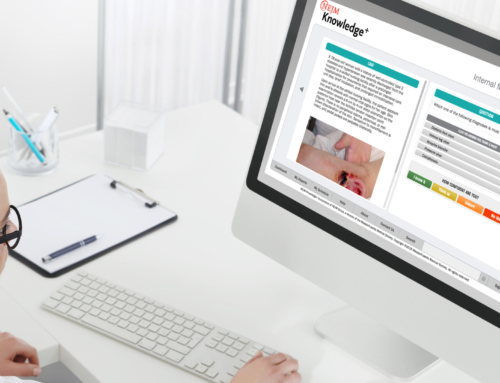
Muy buena oportunidad para aprender y mejorar nuestra destreza clínica
Thanks for the given this amazing post here look sync your settings here and seen the batter working here.